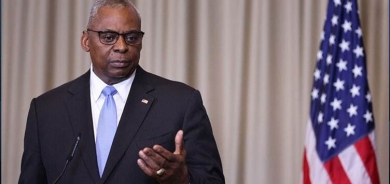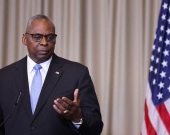Iraq hosts arms expo 9 years after fall of Saddam

IRAQ is hosting its first arms fair, replete with warplanes, tanks, missiles and telecommunications gear, since the 2003 fall of Saddam Hussein which saw the US completely dismantle the country’s military. Iraq is still rebuilding its security forces, which today they number some 900,000 people, including 650,000 employed by the interior ministry.
Baghdad allocated $14.6 billion, or about 15 percent of the budget, to security in 2012, second only to energy which takes up 20 percent as the country seeks to develop its oil sector and fix a chronic electricity shortage.
“This is the first exhibition since the fall of Saddam Hussein, as we need specialised companies to come to Baghdad to show their products to our ministries, so we choose the best,” Deputy Interior Minister Adnan al-Assadi told.
A pavilion at the Baghdad fairgrounds is hosting 40 companies from 13 countries, mainly from South Korea, China, Turkey and Bulgaria, for three days from Sunday, amid tight security measures that are paralysing the city, causing massive traffic jams. Almost all Western countries, however, are absent from the expo.
South Korea and China are showcasing a full range of military equipment, from weapons of all calibres and military vehicles to communications, uniforms and riot gear. “We came to win contracts, but also to develop our relations with this country, where we had the third-largest contingent in the multinational forces after the United States and Great Britain,” said Lee Jong-Duk, director of international relations for the Korea Defence Industry Association.
Sang Choi, vice president of Korea Aerospace Industries, was hoping to sell Iraq 24 T-50 Golden Eagle aircraft which can be used in both training and combat. “We made a proposal last year and we hope that the contract will be signed very soon. I am very optimistic,” he said. For Iraq, rebuilding its air force is a priority, and it has ordered 36 F-16 warplanes from the United States in pursuit of that goal.
Its air force virtually disappeared following the Gulf War in 1991, when it was destroyed or rendered inoperable by the international military coalition that pushed Saddam’s forces out of Kuwait which he invaded the year before. “We need many things but our budget is limited. Our principal concern is the air force and anti-air defence, while the interior ministry’s is border protection and explosives detectors,” Iraq’s top military officer, Lieutenant General Babaker Zebari, told.
In a highly competitive market, the Iraqi Raban al-Safina group began selling products from foreign companies three years ago, especially jamming equipment, robots to disarm bombs, and detection equipment. “It is very important that we are here, because, dealing with terrorists, our country needs this type of equipment,” said Ali Jawhar, an engineer in Raban al-Safina’s electronics department.
Although Baghdad bought a large number of ADE 651 portable explosives detectors from a British company that turned out not to work, spending between $16,500 and $60,000 a unit, Raban al-Safina showed the HEDD1 detector sold by German firm Unival, which the BBC has reported is also ineffective. “It is part of a programme for detecting explosive material,” Hussein Ghanim, an engineer in the same department, said proudly.
The Iraqi army was considered one of the strongest in the Middle East before the 1980-1988 war with Iran, when it was almost exclusively equipped with weaponry from Soviet-bloc countries. But since the 2003 US-led invasion, Baghdad has turned toward American equipment, from M-16 rifles to Abrams tanks and F-16s. Bulgaria still sees opportunities for its military wares, however. “We had very good relations with Iraq before 2003 and now we want to renew them as this is an important market,” said Rumen Raykov, the director of APOLO Engineering, a Sofia-based company that sells ammunition. AFP














